As businesses around the globe embark on the journey to adopt sustainable practices, solar power has emerged as a beacon of promise.
If you’re a business owner contemplating the shift to solar energy, you’ve probably pondered: How efficient are commercial solar panels?
Solar panel efficiency ratings are determined by how well the panel can capture light and turn it into electricity your business can use. Efficiency is mainly determined by the make of the panels, but it is also influenced by other factors, including how it’s installed and configured, as well as the environment it operates within.
Let’s dive into all these factors so you can have a clear understanding.
The Intricacies of Solar Cell Efficiency
Before we analyse the efficiency of commercial solar panels, it’s essential to understand their fundamental component: the solar cell.
- Solar Cells – The Powerhouses: These are the basic building blocks of solar panels. Comprising semiconductor materials like silicon, they capture sunlight and convert it into electricity.
- Photovoltaic (PV) Effect: When sunlight (or photons) hits a solar cell, it excites the electrons in the semiconductor. This excitement causes electrons to move, thus producing an electric current.
Many cells are combined to form solar panels, which are all linked together to send the electric current that flows to an inverter. This inverter converts the DC (direct current) energy into AC (alternating current) electricity that is used to power your business.
Modern Solar Panel Efficiency
Thanks to advances in solar panel systems over the decade, solar panel efficiency has increased from around 11-15% to around 22-27%, with monocrystalline panels being the most efficient solar panels on the market today.
Factors Influencing Solar Panel Efficiency
Solar panels don’t always convert 100% of the sunlight they receive. Multiple factors play a role:
Material Quality: The purity and type of silicon used in the solar cells. High-quality materials generally yield better efficiency. For example, the Astronergy solar panels we use when installing solar panels for many of our clients are some of the most efficient solar panels on the market, thanks to their high-performing monocrystalline modules with greater light absorption.
Temperature: Solar panels prefer cooler conditions. Surprisingly, on sweltering days, their efficiency might dip slightly. This is because the output voltage of solar panels decreases with higher temperatures, reducing their ability to generate power. Solar panel efficiency generally decreases by up to 0.5% for every degree above 25°C.
Angle and Direction: In Australia, panels ideally should face north for optimal sunlight exposure. However, some east or west-facing panels can also be efficient, especially if you want to capture morning or afternoon sun.
The tilt angle also affects the amount of sunlight received. A tilt angle between 20° and 30° is recommended in most parts of Australia. But it’s always best to consult Kuga’s experts for site-specific advice.
Solar Irradiance (Sun Hours): The amount of solar radiation per square metre (solar irradiance or sun hours) significantly impacts combined solar cell efficiency. The more solar irradiance, the higher the power output of the solar panels.
Using a Solar Battery System: One key factor that is often forgotten when considering solar panel efficiency is the use of a solar battery system. A battery system means that when your panels are producing solar energy, you can store it for later use if you don’t need it right now. A battery system greatly increases the energy efficiency of your solar panel system.
Maintaining Your Solar Panels
To keep your solar system at peak performance:
Regular Cleaning: Dust and debris can obstruct sunlight. Periodic cleaning can ensure your panels capture as much sunlight as possible.
Check for Shading: New obstructions, like growing trees, can cast shadows on your panels. It’s wise to regularly check for such obstacles.
Routine Inspections: Have professionals check your system for wear and tear or malfunctioning components.
Learn more about how to upkeep and maintain your commercial solar panels.
The Advantage of Expert Installation with Kuga Electrical
Transitioning to solar is not just about buying and placing solar panels on rooftops. Proper installation and maintenance are paramount to ensure you get the most out of your renewable energy solution.
Expertise: Kuga Electrical boasts a team of seasoned electricians and solar panel installation experts who guide your business through every step, ensuring your solar panel efficiency is maximised.
Custom Solutions: We understand that every business is unique and approach each installation holistically. Look at some of the tailored solutions we’ve engineered with our past projects, ensuring optimal efficiency and ROI for customers with different business needs and installation challenges.
After-sales Support: From maintenance checks to resolving any issues, our team provides steadfast support. We provide a FREE monitoring service for full transparency over your solar energy system’s efficiency.
Learn more about the advantages of installing a commercial solar system with KugaElectrical.
Efficient Commercial Solar Panels – The Key to a Green and Cost-Effective Future
To encapsulate, commercial solar panels offer a robust solution for businesses aiming to offset their energy costs and adopt sustainable practices. With the right setup, periodic maintenance, and expert guidance from teams like Kuga Electrical, these panels can function at their peak, promising both financial savings and a step towards a greener future.
Key Takeaways
- Commercial solar panels are an amalgamation of multiple solar cells working in tandem.
- Several factors, including material quality and installation angle, influence efficiency.
- Proper maintenance ensures long-term efficiency and longevity.
- Partnering with experts like Kuga Electrical ensures you benefit from high-efficiency solar panels installed as part of the most efficient possible solar energy system.
So, if you’re interested in solar energy systems or upgrading to higher-efficiency solar panels, contact the Kuga team so we can discuss your renewable energy needs.
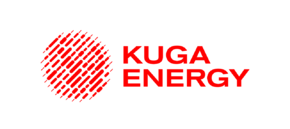


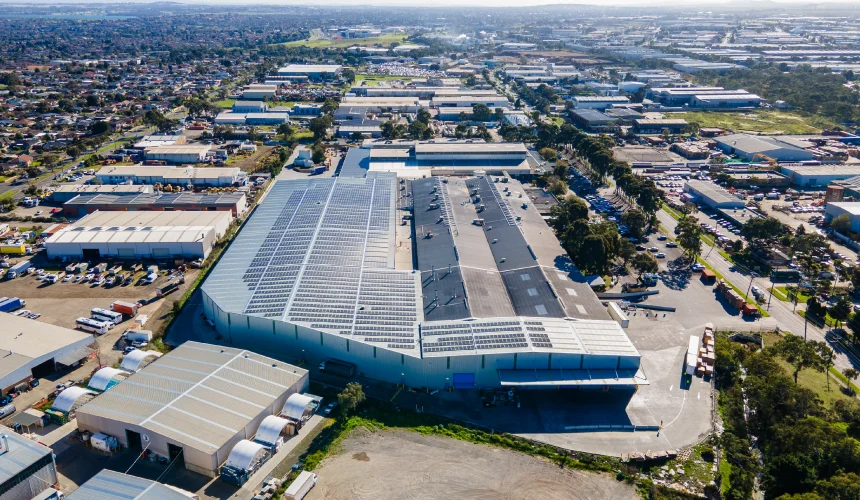



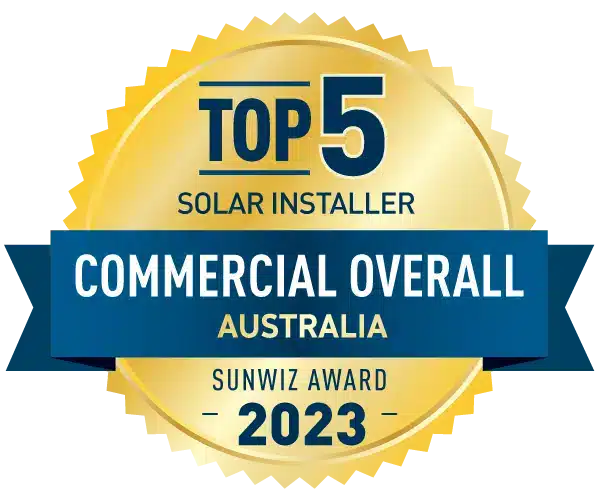


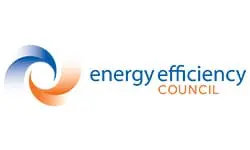
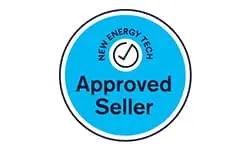
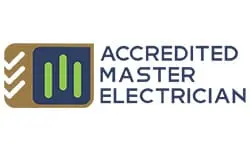
 Get Quote
Get Quote Call Now
Call Now